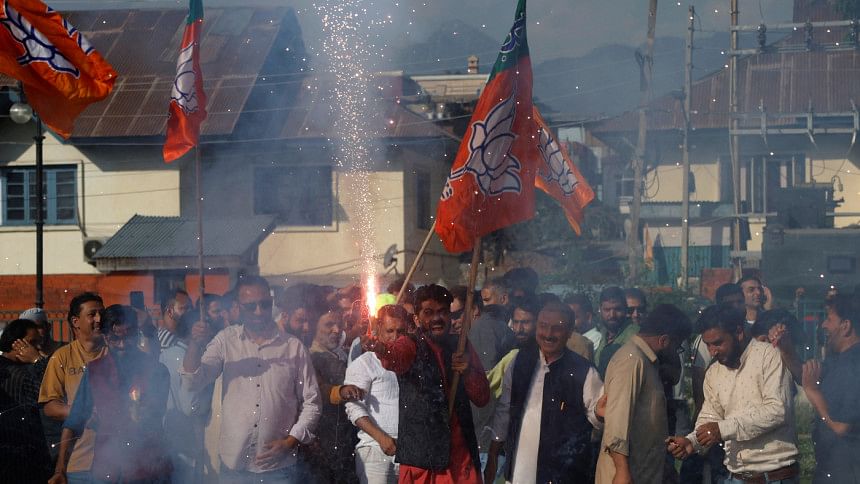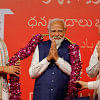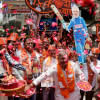Exit polls proven wrong in India once again

The exit polls have predicted huge wins for the Bharatiya Janata Party (BJP) led NDA bloc after India completed its seven-phase voting. However, as results have started pouring in today, the Indian National Congress (INC) led INDIA bloc seems to have made massive gains over their poor showing in 2019.
While early counts show that the NDA bloc is set to get a majority in the 543-seat lower house of India's parliament, the BJP is unlikely to get a majority alone as it got in 2019. That year, the party won 303 seats more than 30 seats of the majority mark of 272. But this year, it is likely to struggle to get to 250 seats as shows the trend.
However, the NDA alliance it leads is well set to form the government with around 300 seats. The INC, on the other hand, has made massive gains. From 52 seats in 2019, it is set to claim victory in 97 seats this year. The opposition INDIA bloc, according to the trend, is set to get 231 seats this year, whereas the INC-led alliance in 2019 had just 91 seats.
This is a stark departure from what the exit polls and pre-election polling in India indicated.
For instance, the News18 mega exit poll, conducted by a major television news network in India, predicted that the NDA would take anywhere between 355 and 370 seats, with the BJP taking over 300 seats by itself. On the other hand, INC was touted to take between 62 and 72 seats, with the INDIA block winning between 125 and 140 seats.
Today's Chanakya, a political research organisation, predicted an even bigger win for the NDA. It predicted that the ruling alliance would get 385 to 415 seats, and between 96 and 118 seats for the INDIA bloc.
In fact, in an aggregation of major polls done by News18, the lowest number of seats the BJP was predicted to win was 359, given by PMARQ, which is a poll conducted by Republic TV, a right-wing conservative television studio in India.
While the BJP-led alliance will still control the parliament, the results prove that the pre-election polling and exit polls got their figures wrong by a big margin.
Exit polls in India have been wrong in the past as well, with the most recent instance being the 2015 Delhi Assembly elections. Arvind Kejriwal's Aam Admi Party (AAP) was predicted to win, but no one foresaw their landslide win taking 67 out of 70 seats.
Once more, during the 2014 Lok Sabha Elections, polls predicted a narrow win for the BJP alliance without getting the majority. However, in 2014, the BJP made history by becoming the first party to win the majority outright since 1984.
BJP was on the receiving end of inaccurate exit polls in the 2004 Lok Sabha Elections, where it was predicted that Atal Vihari Vajpayee's alliance would comfortably keep hold of the parliament. However, that year, they narrowly lost out to the Congress-led alliance and lost control of the government.
The Indian General Election of 2024 is just another addition to a long line of inaccurate opinion and exit polling that has plagued the Indian media for decades. It only goes to show how difficult it is to predict the ebbs and flows of a democracy as diverse as India's.

 For all latest news, follow The Daily Star's Google News channel.
For all latest news, follow The Daily Star's Google News channel. 








Comments